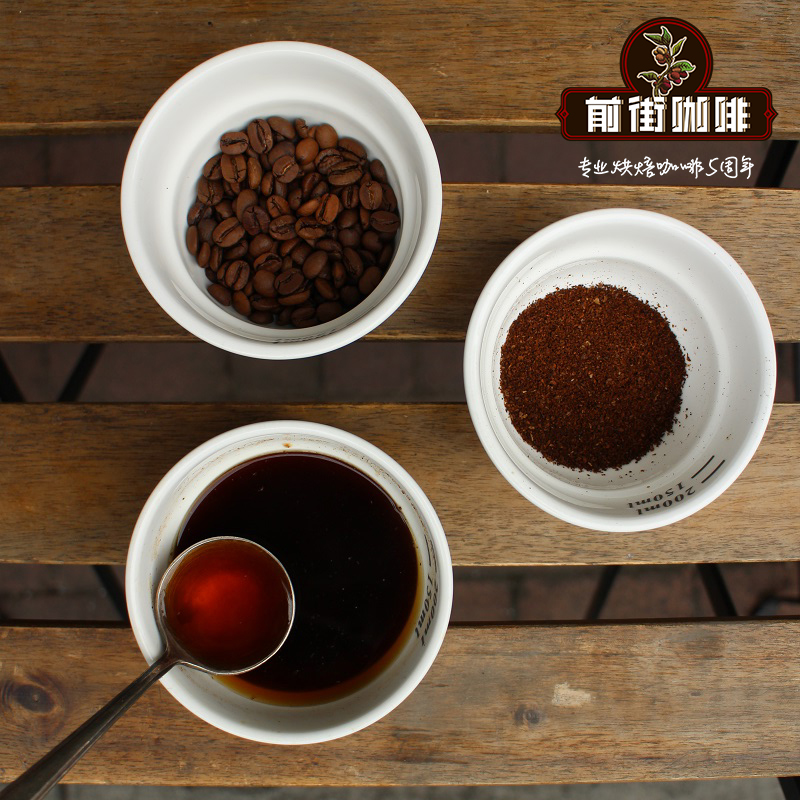Why is the coffee salty? Is the bitter and salty coffee really a bad flavor?

Why is the coffee salty? Is the bitter and salty coffee really a bad flavor?
With regard to the bitterness and saltiness of the five basic flavors, although these two flavors are the most familiar in life, they are worth talking about in the field of coffee. For example, does good coffee have to have no bitter taste? Why do you sometimes get salty taste in coffee? Next, let's learn about these two familiar but unfamiliar smells.
The bitterness that cannot disappear in coffee
Most people naturally reject bitterness.
In our last reading note, we described sweetness as saying that human beings are not born to reject sweetness. But on the contrary, bitterness seems to be the most repulsive taste of the basic five flavors, which is also the "code" engraved in our human genes: when food is scarce and cavemen hunt for food to survive, they quickly learn not to eat too much food that makes them sick and to avoid food that makes them sick or diarrhea. These uncomfortable foods are likely to contain large amounts of phytonutrients, that is, effective nutrients. And if you ingest large amounts of these compounds, they will have toxic reactions, so the way our bodies work is very smart: poisonous food can make you sick, and it tastes bitter, so you don't get toxic doses, so most people avoid bitterness.
Where does the bitterness in coffee come from?
As we all know, coffee is a kind of fruit. Many lightly roasted coffee has the sour and sweet taste of fruit, and it also has the feeling of fruit juice. But strictly speaking, fruits eat pulp, while similar foods that eat "seeds" (that is, the main part of coffee cherries), such as walnuts, peanuts and almonds, are grains and most of them need to be reprocessed before eating. Because of this, coffee beans need to be roasted at high temperatures for a long time before they can be eaten, so bitterness can not be avoided.
The bitterness in coffee mainly comes from chlorogenic acid (chlorogenic acid decomposes into chlorogenic acid lactone during roasting), trigonelline (alkaloid with bitter taste), caramel carbonization of roasted coffee beans (polymer brown pigment produced after baking caramelization), of course, excessive extraction of coffee beans will also have obvious bitter taste. Although caffeine, as we know it, is also an alkaloid, it is not the main source of coffee bitterness.
Bitterness is not useless.
The author mentions in the book that most people avoid bitterness, but talented chefs use bitterness to add complexity to dishes. Our lazy taste is easy to accept sweet food, but mixed with "just right" bitter sweetness can make you think: "Hmm?" It tastes very special. " Bitterness plays such a complicated role. Bitterness can make foods that are too salty or too sweet less extreme, that is, bitterness suppresses saltiness and sweetness.
As for coffee, the editor believes that a good cup of coffee should be a balance between sweet and sour, with a more prominent flavor, bitterness is not non-existent, but the bitterness of good coffee is not strong and not exciting. Even in some coffee, the appropriate bitterness can enhance the hierarchical sense of the coffee, making the flavor of the coffee clearer and more obvious.

There is a salty taste in the coffee
First of all, the minerals in coffee account for about 14% of the total weight of soluble matter in coffee. Therefore, the salty taste in coffee, like bitterness, is "real", except that under certain conditions, they can be "hidden".
Although the taste of coffee is a subjective preference, some people like sour, some like bitter and some like salty, but putting aside the subjective preference, if there is a salty taste in the coffee, it usually means that there is a "mistake" in some links.
The quality of coffee beans is flawed: if there are unripe beans, overfermented or low-sugar coffee beans, their acidity is too sharp and irritating, suppressing sweetness, causing the coffee to taste salty.
The organic acid content of deep-roasted coffee beans is much lower than that of medium-and shallow-roasted coffee beans, so the sour taste is greatly reduced, while in the sense of taste, low acid can increase saltiness, and the original "hidden" salty taste is easier to show. Therefore, if the coffee beans are roasted deeply, it is easy to make the coffee salty.
When brewing coffee, it is easy to taste salty if it is light roasted coffee with insufficient extraction or high concentration coffee, because the sweetness of the coffee is not extracted, such coffee is also easy to have salty taste.
Why is it easy to confuse sour and salty
Some sour tastes salty and some salty tastes sour. We often confuse the two. Scientists have confirmed that we often think of salty as sour and sour as salty because they feel similarly in taste receptors, unlike sweetness, bitterness and delicacy like keys in the corresponding keyhole. So this also explains why we seem to be able to drink coffee with a salty taste when the coffee is not extracted (when the coffee is not extracted, the stimulating acid taste dominates).
Important Notice :
前街咖啡 FrontStreet Coffee has moved to new addredd:
FrontStreet Coffee Address: 315,Donghua East Road,GuangZhou
Tel:020 38364473
- Prev

What are the grades of coffee beans? national standard coffee bean rating standard
Explore the coffee classification system! Teach you to read the label on a coffee bag when we go to a coffee shop to buy a cup of coffee or coffee beans, we always see a series of words, which are interspersed with several initials, such as AA, G1, SHG, etc., which actually means that each country classifies coffee according to its characteristics. It is worth noting that in different producing countries, there will be different habits.
- Next

Can you make mocha coffee at home? Introduction to the method of making perfect mocha coffee at home
Q: what's the secret of making the perfect mocha at home? A: it's no secret that chocolate goes well with coffee. As your own chocolate and coffee lover, making mocha at home is an easy way to save change and satisfy your craving for chocolate. Here are some simple techniques: 1. Fresh coffee: use freshly roasted coffee beans to avoid
Related
- Beginners will see the "Coffee pull flower" guide!
- What is the difference between ice blog purified milk and ordinary milk coffee?
- Why is the Philippines the largest producer of crops in Liberia?
- For coffee extraction, should the fine powder be retained?
- How does extracted espresso fill pressed powder? How much strength does it take to press the powder?
- How to make jasmine cold extract coffee? Is the jasmine + latte good?
- Will this little toy really make the coffee taste better? How does Lily Drip affect coffee extraction?
- Will the action of slapping the filter cup also affect coffee extraction?
- What's the difference between powder-to-water ratio and powder-to-liquid ratio?
- What is the Ethiopian local species? What does it have to do with Heirloom native species?

